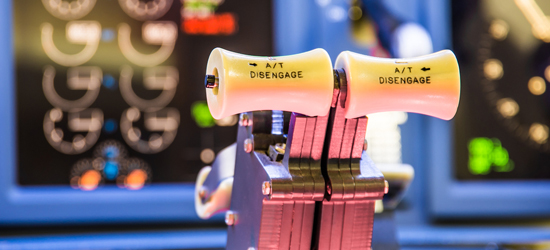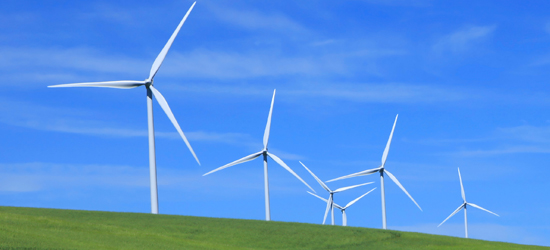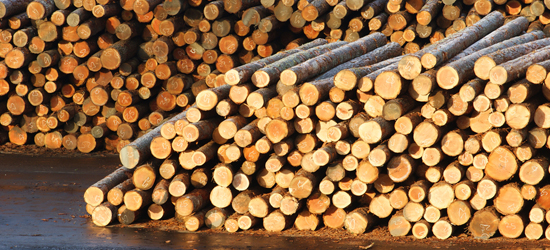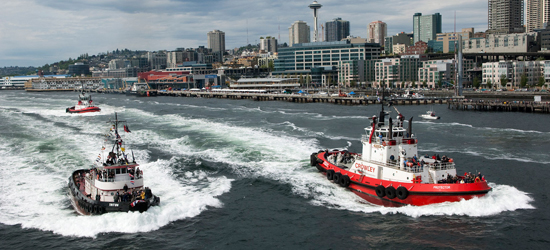Key Sectors Bring Focus to High Growth Industries
Focusing on the aerospace, agriculture/food manufacturing, clean technology, information and communication technology, forest products, life science/global health, maritime, and military/defense sectors, Commerce’s Sector Leads work closely with the governor, industry and government leaders to forge and promote public-private partnerships, enhance the workforce for the 21st century in targeted, high-growth industries, and advance broad stroke strategies that support small business growth and expansion statewide.

Aerospace
The Aerospace sector is focused on ensuring that Washington State maintains its global leadership as an aircraft and uncrewed aerial systems (UAS) manufacturer and as a valued supplier to a global supply chain of aerospace companies and airlines. The sector also works with industry leaders to align workforce training programs with business needs and enact policies that will spur further growth and investment in the aerospace sector statewide.

Agriculture and Food Manufacturing
The Agriculture sector is focused on expanding markets for Washington's 300 crop commodities as well as manufactured foods through the elimination of trade barriers, reduced and streamlined regulations, and increased efficiencies in transportation, while managing and protecting the state's precious natural resources and existing farmlands.

Clean Technology
One of the governor's top priorities is to create an economic climate where innovation and entrepreneurship can continue to thrive and create well paying jobs in every corner of our state. To support this, the Clean Technology sector works with a cross-section of industries and stakeholders to explore and perfect new technologies and production processes to improve their environmental and business performance.

Creative Economy
Taking an idea and turning it into a viable product or service, one that can be monetized, sold and resold, is one of the most powerful ways to increase wealth and equity throughout the state while ensuring diversity and inclusivity. More than 180,000 workers are employed in the creative sector, which includes designers, artisans, 3-D technologists, digital designers and many more traditional and emerging disciplines.

Forest Products
Washington’s Forest Products sector has provided wise stewardship of our natural resources and community sustaining, family wage jobs for more than 165 years. Despite challenges, the industry’s ability to innovate, modernize and diversify provides proof that this giant piece of Washington’s past will also play a critical role in our future. Factoring in pulp and paper and value-added wood products (such as doors, window frames and stairs), forest products is the 3rd largest manufacturing sector in Washington.

Information and Communications Technology
Few places in the country can match Washington's talented pool of information and communication technology (ICT) workers, whether they work in small start-ups destined to be the next business legend or companies that have had a global impact on the marketplace . The ICT sector strategy facilitates sustainable investment, top talent capacity and growth in the state’s cutting edge technology sector, including software, networks, gaming, ecommerce and big data.

Life Sciences and Global Health
This sector is comprised of world-class research institutions, motivated and talented entrepreneurs and well-established organizations that are recognized for their breakthrough discoveries. The Life Science/Global Health sector is focused on recruiting new companies and organizations to Washington, helping existing ones expand and grow, and increasing the number of internationally known researchers and federal funding for Washington's research institutions.

Maritime
Leveraging Washington's maritime roots, this sector is focused on promoting policies and actions that sustain the health of the industry while creating a strong base for future growth, including addressing permitting issues that can be a roadblock to investment in marine businesses. The Maritime sector is also committed to closing gaps in training and education for maritime trades and promoting maritime economic development statewide.

Military and Defense
Washington's Military and Defense sector supports the state's economic growth through a diverse set of defense missions and military installations, contractors and vendors and military-friendly communities. This sector focuses on three key issues: mitigating military downsizing across the state, advocating for the sector in-state and out of state, and addressing the challenges and opportunities for growth with a focus on base realignment and closure (BRAC) and the successful transition of service members to civilian life.

Tourism
Tourism is the fourth largest industry in Washington State after ICT, aerospace and forest products. Tourism employs more than 180,000 workers and generates roughly $22.1 billion in annual revenue. Industry data estimates that every dollar a tourist spends generates $1.36 in additional economic impact. Two-thirds of travelers are state residents who enjoy Washington’s year-round recreation and sports opportunities.
Learn more about the key industry sectors helping to drive Washington’s economy at ChooseWashingtonState.com.
